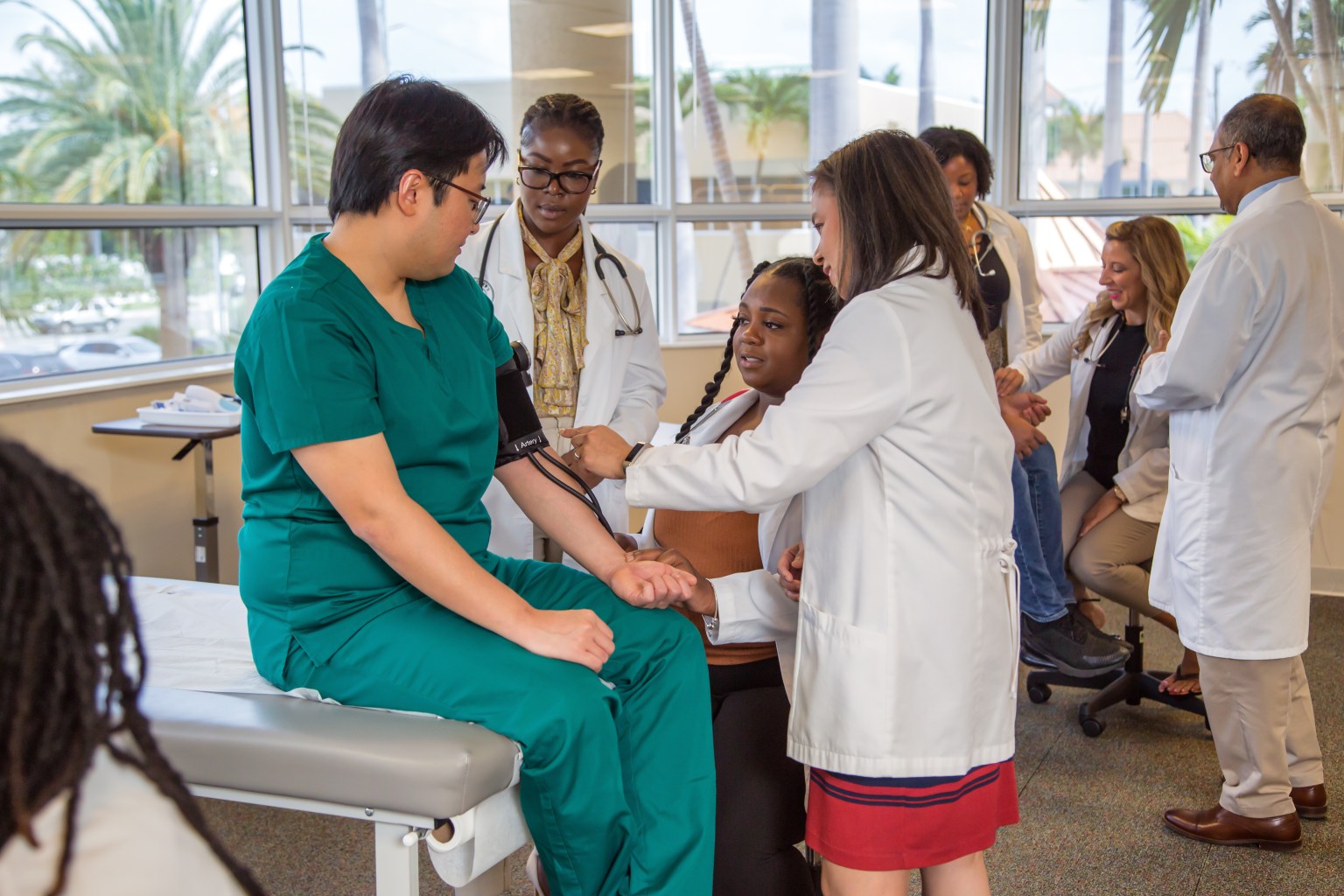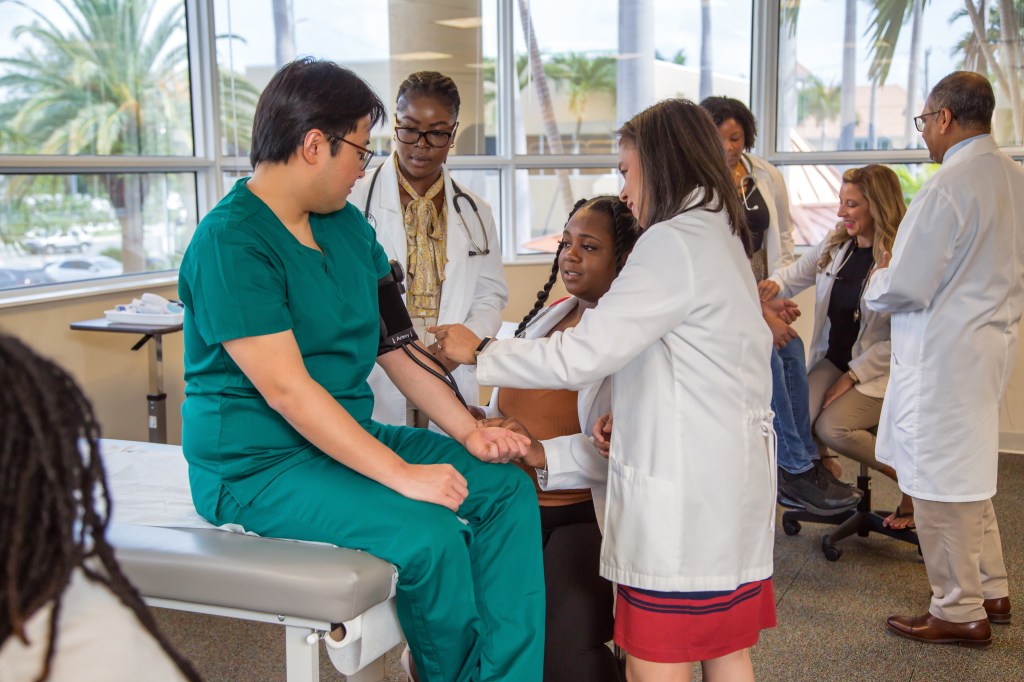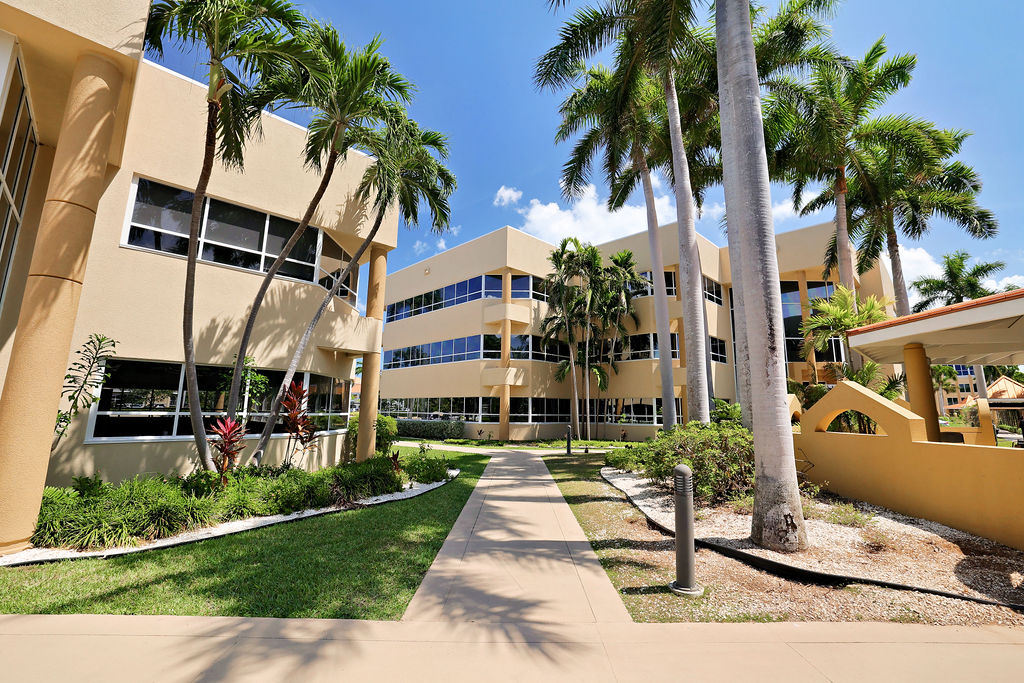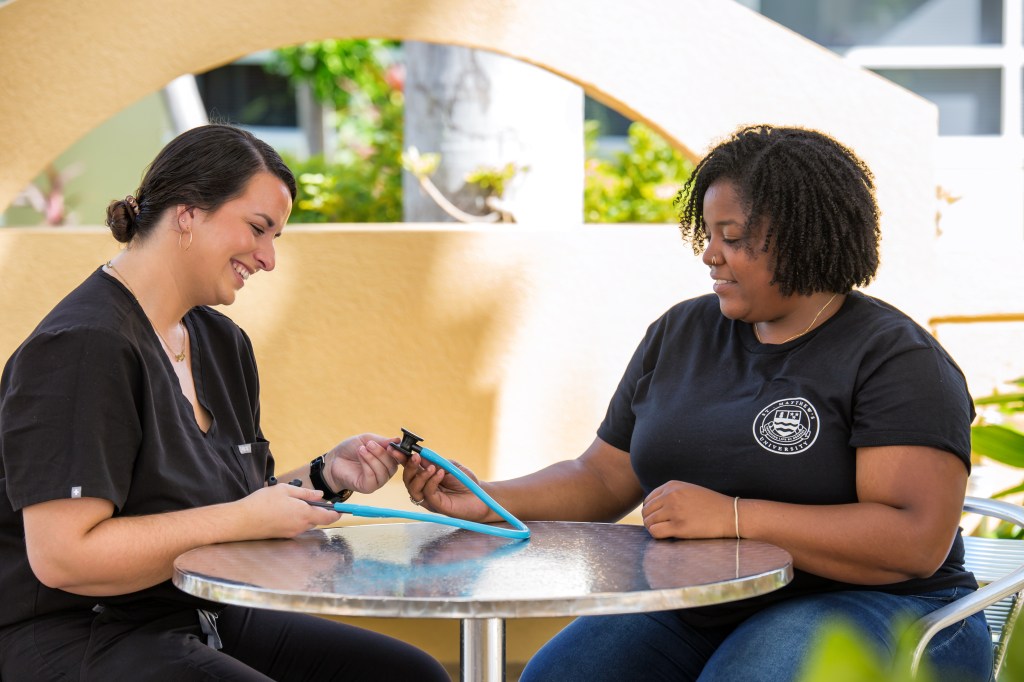
How to Get Into a Caribbean Medical School
Explore the many benefits of Caribbean medical schools and how to successfully navigate admissions requirements.
Aspiring medical students wishing to practice in the United States are often dissuaded by the stiff competition to get into medical school. According to data released by the Association of American Medical Colleges (AAMC), the acceptance rate of the most selective U.S. medical schools is less than four percent.
Caribbean medical schools can be a very attractive alternative to U.S. medical schools, as they also provide a comprehensive education while enabling you to do your clinical rotations and residency in the United States and Canada. The acceptance rate for most Caribbean medical schools, including St. Matthew’s University School of Medicine (SMUSOM), is higher while still providing everything that future physicians need to succeed academically and throughout their future careers in medicine.
To provide some guidance as you consider medical school options, this blog will guide you through medical school admissions requirements, how to apply to Caribbean medical schools and what you can do to secure a spot in the Doctor of Medicine (MD) program of your choice.
Develop Relevant Medical Experience
To enhance your medical school application, it is a good idea to develop experience in healthcare related settings, in either paid or volunteer roles. This can include hospitals, clinics, long-term care homes, hospices and other similar sites. This not only helps you develop some early skills related to care, but demonstrates your passion for medicine and interest in helping others.
Look for opportunities that let you shadow doctors or other professionals in their daily jobs. Non-shadowing roles like filing X-rays at your local clinic can also give you an insight into a specific medical career. Other relevant medical experiences that you can add to your resume include becoming a hospital scribe, medical technician, paramedic or mental health counselor.
Make Sure You Have the Required Grades and Coursework
Although your MD program application won’t be judged solely on the basis of your post-secondary grades, they are extremely important and will strengthen or weaken your chances of being accepted.
Additionally, you should ensure you have completed the course prerequisites required by your preferred medical schools. Most Caribbean medical universities, including SMUSOM, require that MD applicants have successfully completed science-based coursework in subjects like biology to ensure that they will be able to follow the extensive medical curriculum.



Achieve Competitive MCAT Scores
If you are an aspiring medical school student, you are probably aware that your Medical College Admission Test (MCAT) scores are important to your MD program application.
Even if the medical school you are applying to does not have a minimum required MCAT score in order to apply, such as SMUSOM, it is still important to take the test very seriously and aim for the best possible results. This makes your candidacy more competitive and increases the likelihood that you will be accepted. Importantly, it can also impact the merit-based scholarships you will be eligible for.
To succeed in your MCAT exam, start your preparation early and find a study method that works for you. You can also look for online resources like mock tests to supplement your preparation.
Please note, SMUSOM MD program applicants from the United States are required to submit their MCAT scores. Canadian and international students are not required to submit their MCAT scores, although it is recommended that they do so.
Get Involved in Research and Extracurricular Activities
Gaining medical research experience during your undergraduate program can help you develop a successful application that sets you apart. It shows that you are already familiar with medical concepts and that you’re truly interested in the field. It also helps demonstrate your critical thinking skills and scientific curiosity, qualities that are required for a good doctor.
Extracurricular and volunteer activities also communicate that you’re a well rounded applicant who is ready to make a positive impact on the school community, and that you are capable of managing multiple priorities while in school. Given the extensive nature of a medical education, admissions evaluators will be curious about your ability to handle the workload. A breadth of activities and experiences during your undergraduate studies can show off your readiness for med school.
Prepare for Medical School Interviews
Medical school interviews give you the chance to showcase qualities that aren’t captured on paper. Admissions committees want to see how you respond under pressure, whether you can communicate ideas clearly and how well you understand the realities of a medical education. Researching the institution’s mission and programs will help you connect your experiences to what they value in future doctors.
Preparation goes beyond memorising answers. Mock interviews can help refine your delivery, but interviewers are looking for genuine conversations, not rehearsed scripts. Some medical school interview tips include asking thoughtful questions about student life, the curriculum or clinical training to show your enthusiasm for the program, and going into detail about what inspired you to pursue a career as a practicing physician.
It is also important to consider how you present yourself. Engaged body language and a steady, confident tone can make a lasting impression. Be authentic to yourself and share what makes you unique – medical schools like SMUSOM value diverse experiences and your personal passion for medicine.
Why Choose SMUSOM for Your Medical Studies?
St. Matthew’s University School of Medicine has trained more than 2,300 Doctor of Medicine (MD) program graduates since 1997. Our alumni then go on to achieve residency placements and practices in the U.S. and Canada!
We are committed to delivering individualized support from dedicated faculty members, early hands-on training opportunities and extensive student services, all to help ensure that our students succeed academically, personally and throughout their future careers as practicing medical doctors.
Explore our website to learn more about everything we can do to help you achieve your goals, or start by viewing this student testimonial video to gain some firsthand insights about student life on the St. Matthew’s University Basic Science campus on the island of Grand Cayman:
You can also contact us to learn more, or jump right in and start your MD program application today. No matter where you are in your journey, be sure to keep us in mind as you’re considering applying to med school in the Caribbean!
FAQs About Caribbean Medical Schools
The Caribbean medical school acceptance rate is generally higher than U.S. schools, but impactful applications, including strong GPA averages, MCAT scores and letters of recommendation are still required. Applicants must also demonstrate their personal motivation, clinical experience and a commitment to medicine. Specific Caribbean medical school prerequisites vary, so it is important to ensure that you will meet the admissions requirements at your school of choice before applying.
Some schools require a minimum MCAT score in order to apply, while other Caribbean medical schools have no MCAT requirement or consider it as part of a holistic review. Caribbean medical school requirements vary, so checking individual school policies is essential to understanding their specific requirements. At St. Matthew’s University, our holistic review process does not include a minimum score requirement and only MD program applicants from the United States are required to submit their MCAT score in order to apply.
Many Caribbean medical schools are recognized in the U.S., but accreditation and licensing statuses vary. Our accreditor, the Accreditation Commission on Colleges of Medicine (ACCM), is recognized by the World Federation of Medical Education (WFME) and its standards have been deemed comparable to the standards used to accredit medical schools in the United States by the U.S. Department of Education’s National Committee on Foreign Medical Education and Accreditation (NCFMEA). SMUSOM MD program graduates are eligible to practice in the United States, Canada and internationally.
Yes, many Caribbean medical schools welcome international students, offering a diverse and globally focused learning environment. Admissions criteria may vary by country, but most schools assess academic records, entrance exams and English proficiency. Students should also check visa requirements and post-graduation licensing options in their home country.